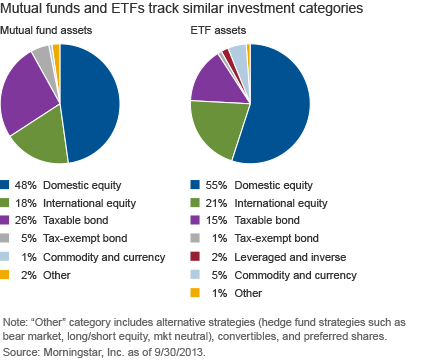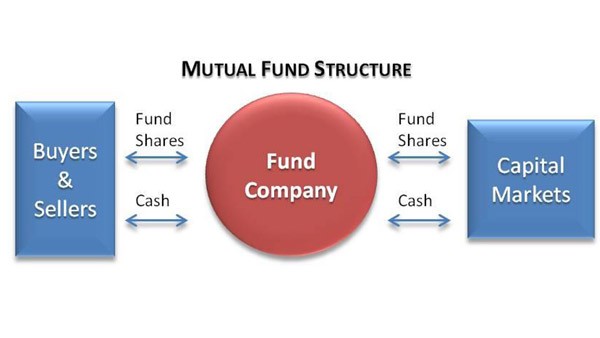ETF v Funds Tax Efficiency Capital Gains and Index Funds
Post on: 8 Июнь, 2015 No Comment

2013 was a great year for US stocks, and that also means that many mutual funds distributed (taxable) capital gains to their shareholders. ETFs are hot right now and there are many articles like this one which tout the tax-efficiency aspect of ETFs as to why they are superior to mutual funds.
Yes, it is true that ETFs have an inherent structural advantage over mutual funds in avoiding the production of capital gains. (I wont explain it here, but here is one explanation .) However, the primary reason that mutual funds tend to distribute more capital gains is that most ETFs are passive and thus trade sparingly, while actively-managed funds by definition buy and sell much more frequently (what else are you paying them to do?).
But if you hold a good index fund, it will have very low turnover and thus youll rarely have to deal with capital gains either way. For example, both the Vanguard S&P 500 Index Fund (VFINX ) and the Fidelity Spartan 500 Index Fund (FUSEX ) had zero capital gains distributions in 2013 despite being up over 30% for the year.
On top of all that, at Vanguard their mutual funds and ETFs of the same name are structured as different share classes of the same basket of securities. That means the mutual funds and ETFs have exactly the same level of tax-efficiency. From the Vanguard website:
Are there tax advantages to owning Vanguard ETFs?
Because Vanguard ETFs are shares of conventional Vanguard index funds, they can take full advantage of tax-management strategies available to conventional funds and to ETFs. Conventional index funds can manage tax liabilities by selling high-cost securities to realize losses to offset realized gains. Vanguard ETFs can also limit a funds potential capital gains exposure by using in-kind redemptions to eliminate stocks with high built-in capital gains from the portfolio. This advantage gives our Vanguard ETFs management team more flexibility in implementing tax-management strategies.

For example in 2013, both the Vanguard Total Bond Market Index mutual fund (VBMFX) and ETF version Vanguard Total Bond Market ETF (BND) distributed a small long-term capital gain 0.076% of NAV.
Bottom line: If you hold passively-managed index funds, it really wont matter much tax-wise if you pick ETF or mutual fund. If you hold Vanguard funds, it wont matter at all. There are other factors like expense ratio differences or intra-day pricing availability that may sway you to either mutual fund or ETFs.
If you hold actively-managed funds, you will be less tax-efficient and that will be an additional drag on performance unless you hold them in tax-advantaged accounts.














